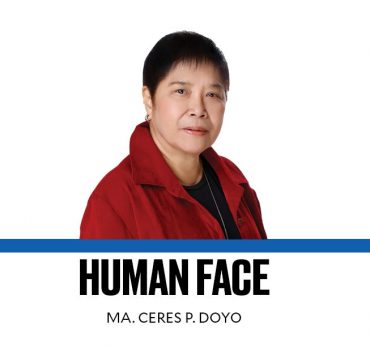Survey-defying poll results

Virtually locked out in several surveys, former senators Bam Aquino and Kiko Pangilinan shocked even their camps by placing second and fifth, respectively, in the hotly contested senatorial race in last Monday’s elections.
The two opposition candidates had neither giant tarpaulins, flashy TV ads, and catchy campaign jingles to trigger name recall and to boost their mass appeal. In contrast, most of the survey topnotchers have the vast resources and command votes of political dynasties and showbiz connections to count on.
So what went wrong? Have surveys become irrelevant as a way of gauging public sentiment during the particularly partisan election period? Should surveys be banned during the campaign season as some quarters have suggested, claiming they are nothing more than mind-conditioning exercises meant to favor the parties that commissioned them?
In an Inquirer interview, Pulse Asia president Ronald Holmes conceded that this election “was the first time where … movements in ranks [were] quite significant.” Results of the May 12 elections deviated widely from the Magic 12 circle of Pulse Asia’s April 20 to 24 survey, with Aquino, Pangilinan and Rodante Marcoleta making it to the top six slots despite being perennial survey laggards.
Personality-oriented polls
University of the Philippines statistician Peter Cayton has put it down to surveys being “very time-sensitive,” with election results highly dependent on events that may have happened in the crucial interval between the latest survey and the election itself.
For instance, Bong Go and Bato dela Rosa’s first and third placement in the senatorial race, respectively, have been described as “protest votes” triggered by Duterte’s arrest and detention at The Hague-based International Criminal Court. The support of the bloc-voting church, Iglesia ni Cristo, was seen as reason for Marcoleta’s high ranking in the senatorial race.
Holmes said Pulse Asia would review its methodology which “doesn’t draw random sample based on age,” to assess how it could better capture the “millennial/Gen Z” vote that has likely propelled “Bam-Kiko” to the Top 5.
Millennial and GenZ voters, or those born in the 1980s to 2000s, are seen to be more idealistic, basing their poll choices on issues and performance, rather than the glitzy song and dance routine that define the country’s personality-oriented polls. Pasig mayor Vico Sotto’s record of good governance, for one, resonated well with the young, and handily won him his third term by a landslide. Contrary to previous polls, many showbiz personalities and celebrities didn’t make it as senators.
Enlightened voters
Another positive note is Akbayan’s win as top party list which allows it three House representatives including rights lawyer Chel Diokno, and that of Mamamayang Liberal, with former senator Leila de Lima as first nominee. Known for their feisty and independent stance, the two lawyers are expected to add depth and substance to House sessions and boost the prosecution team in the impeachment trial of Vice President Sara Duterte.
The opposition could rightly claim a big win in the midterm elections as its candidates overcame insurmountable odds to prove themselves worthy of the vote. With their track record, these candidates showed that credibility could trump money and visibility.
Just as deserving of commendation are the more enlightened voters whose growing political maturity resisted previously accepted campaign tropes to bring in new names and faces into the public service arena.
At the same time, such celebratory mode should be tempered with cautious optimism, given that the same ills that weigh down the country’s political system remain firmly entrenched. Dynasties continue to flourish: the Dutertes have in fact tightened their grip on Davao City, with the former president, his two sons, and two grandsons being handily elected to office. Local offices are still dominated by familiar names, with electoral posts treated as family “heirlooms” to be passed down through generations.
Patronage politics
For every Gwen Garcia of Cebu and Cynthia Villar of Las Piñas flailing in the count, are other familiar names like the Binays, the Gatchalians, the Cayetanos, Villafuertes, Tiangcos, Aguilars, the Marcoses, Olivares, and even Vilma Santos-Recto whose attempt to turn her two sons into neophyte politicians disgusted even her loyal fans.
The roster of winning party lists is as predictable, being seen as proxies for prominent politicians, like second placer Duterte Youth. The rest are similarly affiliated with powerful political families.
It might be too much to expect a seismic shift in our political system just yet, as patronage politics still rules and horse-trading is bound to remain the norm. At the very least, however, the surprising win of opposition and independent candidates stokes hopes that citizens are now prepared to exact accountability from elected officials and expect their performance to match their promises. Now, that’s a good start.

















The heart of a great Filipino leader